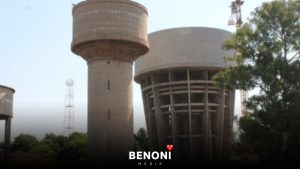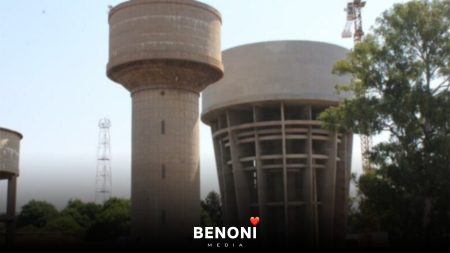The recent enactment of South Africa’s Expropriation Act has ignited a legal battle within the country and heightened diplomatic tensions with the United States. The Democratic Alliance (DA), a key party in the coalition government, has taken the legislation to court, arguing that it grants excessive powers to the state by allowing land expropriation without compensation in specific cases. Meanwhile, US President Donald Trump has responded by freezing financial aid to South Africa and introducing an executive order aimed at resettling white South African farmers in the United States.

The DA’s Legal Challenge: Echoes of Apartheid?
Helen Zille, federal council chair of the DA, has compared the Expropriation Act to the apartheid-era laws that enabled forced removals of communities without fair compensation. The party maintains that the legislation undermines property rights and sets a dangerous precedent by giving the government unchecked expropriation powers.
The DA has argued that land reform should be pursued through constitutional means that protect individual ownership while addressing historical injustices. The party contends that President Cyril Ramaphosa signed the bill into law despite strong opposition and warnings of potential economic and diplomatic fallout.
Trump’s Executive Order: Refugee Status for White South African Farmers
In response to the Expropriation Act, President Trump issued an executive order on February 7, directing US agencies to prioritise the admission of white South African farmers under the United States Refugee Admissions Program. Trump justified this move by claiming that the South African government was targeting a specific group through discriminatory land policies.
Additionally, Trump’s administration has halted financial aid to South Africa, stating that the US “cannot support the government of South Africa’s commission of rights violations.”
South Africa’s Response: Denouncing “Misinformation and Propaganda”
The South African government has firmly rejected Trump’s claims, stating that the Expropriation Act does not constitute land confiscation but rather establishes a legal framework for fair land redistribution. The Department of International Relations and Cooperation (DIRCO) described the US administration’s stance as “a campaign of misinformation and propaganda aimed at misrepresenting our great nation.”
President Ramaphosa has reassured South Africans that the government remains committed to constitutional democracy and the rule of law. In his State of the Nation Address (SoNA), he responded to the escalating tensions, saying, “We will not be bullied. We will stand together as a united nation. We will speak with one voice in defense of our national interest, our sovereignty, and our constitutional democracy.”
The Historical and Political Context of Land Reform
Land ownership remains one of South Africa’s most contentious issues, rooted in the country’s colonial and apartheid past. More than 30 years after the end of apartheid, a disproportionate amount of private farmland is still owned by white South Africans, prompting ongoing demands for land redistribution. The ANC-led government argues that the Expropriation Act is a necessary step to address historical inequalities and promote economic growth.
However, critics—including the DA and international observers—warn that without clear guidelines and safeguards, the policy could deter investment and exacerbate economic instability. The ANC has countered these concerns by stating that land will only be expropriated in exceptional circumstances where it serves the public interest and when all other legal avenues have been exhausted.
Future Implications for US-South Africa Relations
With diplomatic tensions escalating, the future of US-South Africa relations remains uncertain. Trump’s intervention marks a significant shift in Washington’s stance on South African policies, and the freezing of aid could impact various developmental programs. Meanwhile, South Africa has vowed to engage in diplomatic outreach to clarify its land reform policies and counter what it sees as deliberate misrepresentation.
As the legal challenge against the Expropriation Act unfolds, the international community will be watching closely to see how South Africa navigates the complex balance between historical redress, economic stability, and diplomatic relations with one of the world’s largest economies.








